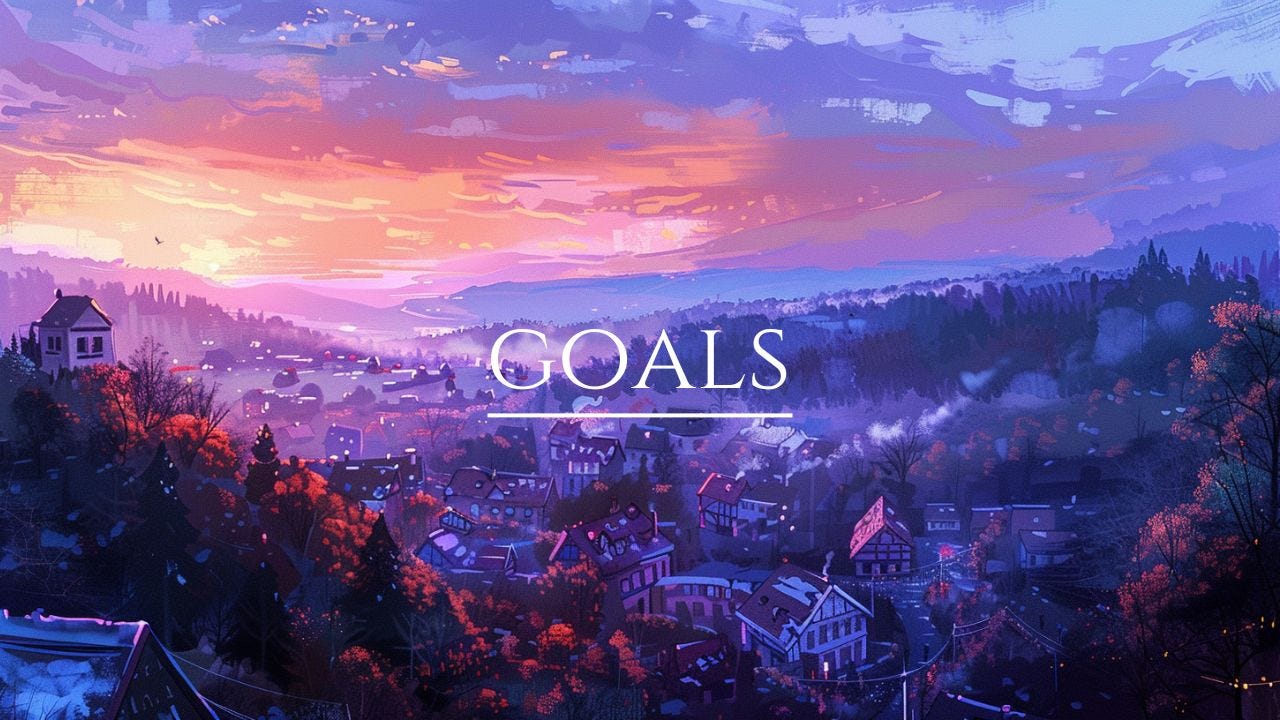How Much Are Our Goals Worth? #005
Do we know what we really want?
As I’m brushing my teeth this morning, I’m already thinking ahead -- what will I do today? I will teach a class on geometry in my secondary school. Or I will implement a new sorting routine for a client’s website I’m working on. Or I will process a bunch of insurance claims. Or do my part in a factory assembly line and help create a hundred new cars.
If you are good at your job, you’ll not be afraid of doing these things. You’ve done them hundreds of times and you know exactly what it takes.
The ancient Greek philosopher Aristotle calls this to know how to achieve one’s goals. And this is very important. It is the basis of our mastery over the world, of our ability to create things, to manage our lives, to give value to others, to make a living.
But wisdom, Aristotle says, is not only knowing how to do stuff. It also needs another, crucially important skill: To know how much one’s goals are worth.
For example, a thief may know how to steal the money out of a handbag. He may be good at that. But where he is mistaken is that he hasn’t considered how much stealing that money is worth to him. Yes, it provides him with instant money. But this is not all a human being needs. In the long run, the thief will not develop as a person, he will not be a valued member of his community, he will not be proud of what he’s achieved in his life. At the end of his life, he’ll be asking himself what it had all been about. Has his life really been worth it?
But this thought isn’t limited to thieves. As I’m rinsing off the toothpaste, I’m thinking of all the goals I have: to teach my classes, to earn more money, to get a higher post in my company, to buy a new car, to move to a bigger house. I know how to achieve all these, given enough time.
But which of those are really worth the trouble? Will I be happier with more money, if I can already live well with what I have? Will a new car really change my life? A new house? It has been shown again and again in studies that we tend to overestimate the effect that purchases and material goods will have on our lives. A few months after buying that new car, we’ll most likely be sitting in it, feeling just as unhappy and unfulfilled as we were before, lusting after an even bigger, newer, flashier car.
So let’s go today and look at our goals. In the end, what we all want is happiness and fulfillment. Which of our goals can actually make us happier, make us fulfilled? Is the bigger house, the more prestigious job title really the answer?
As you look out into the early morning dawn, see how the beauty of the skies is there for all of us, and it is ours entirely for free. The best things in life don’t have a price and cannot be bought: health, friends, the beauty of a morning, the taste of a kiss.
Wisdom, Aristotle says, is to know how much our goals are worth.



Hi Dr Andreas, I am your youtube and Blog viewer. And I am a student at Lingnan. I hope to join your lecture or talk to you on Campus one day. And I also hope to see your opinion about how to set the right goals which are worth it.